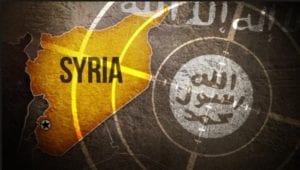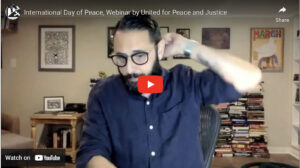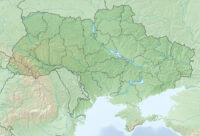
As happened a year ago, the United States threatens to spark a wider war in the Middle East. Following allegations of a chemical weapons attack in a town near Damascus, Syria, the United States and its allies immediately placed responsibility on the Syrian government, with Donald Trump launching a twitter storm also blaming Syria’s allies Russia and Iran. Since then Trump has issued a steady stream of escalating threats, culminating in his April 11 tweet threatening that U.S. missiles soon will be heading for Syria, and taunting “Get ready Russia, because they will be coming, nice and new and ‘smart!’”
Syria and Russia denied any chemical weapons attack has occurred. Both the United Nations Charter and the Chemical Weapons Convention provide means for international investigation and sanction of the use of prohibited weapons. Syria and Russia have declared that they would provide access for investigators from the Organization for the Prohibition of Chemical Weapons to the area where the alleged attack occurred. A rush to judgment on these grave allegations is not only unnecessary, but extremely dangerous.
Unilateral use of military force in these circumstances by the United States, which has not been attacked and is not in imminent danger of attack, is unlawful. Strikes by the U.S. and its allies against Syria’s government and military could result in a wider war that brings the nuclear-armed militaries of Russia and the United States into direct conflict. The danger that hostilities could spiral out of control is even greater than it was when the U.S. struck Syria a year ago. U.S. forces in Syria in recent months have fought engagements resulting in the deaths of Russian nationals, likely military contractors. Any extensive campaign against Syria’s bases and military places Russia’s forces in the region at risk. Russian military officials have warned several times in recent weeks that their military may join in defending against any punitive strikes.
There must be an independent investigation of the chemical attack through the Organization for the Prohibition of Chemical Weapons, and immediate, urgent diplomatic efforts to end the war in Syria. Call your Senators and Congressional Representatives at 202-224-3121 and tell them that military action only increases the dangers and intensifies the humanitarian catastrophe in the region. Demand that Congress invoke its war powers to block any strikes, and endorse calls for an investigation of the allegations of chemical weapons use, consistent with U.S. treaty obligations under the Chemical Weapons Convention and the United Nations Charter.
Finally, join us in protests against the endless U.S. wars and war spending scheduled for this weekend, April 14-15, across the country. Find an action near you at the links below. Whether or not the U.S. already has launched strikes against Syria by this weekend, it will be crucial to come out against a wider war, and for peace.
https://www.springaction2018.org/list-of-actions.html
http://demilitarize.org/gdams-2018/ (scroll down for actions in the United States).
Call your Senators and Congressional Representatives at 202-224-3121
Background: the April 2018 allegations of a chemical weapons use in Syria, U.S. threats of punitive actions, and the dangers of a wider war.
Since World War I, use of chemical weapons has been viewed almost universally as monstrous, and as a violation of treaty-based and customary standards of international humanitarian law. If they were used in Syria by any party, that action should be condemned, and all states should cooperate in identifying the perpetrators and in pursuing their apprehension and prosecution by all legal means. There is no provision of international law, however, that allows countries to determine for themselves who they believe the guilty parties to be, and to punish them by acts of war against the territory of a sovereign state. International treaties outlawing chemical weapons and prohibiting their use provide no special exception for such ad hoc use of military force. To the contrary, the Chemical Weapons Convention, the most comprehensive instrument concerning chemical weapons, ratified by the United States (1997), Russia (1997) and Syria (2013), provides for investigation of alleged violations by specialist bodies constituted by the Convention and recourse to the United Nations to authorize any use of force.
Token punitive strikes have neither a legal or practical rationale. If a government is desperate enough to use chemical weapons, it is unlikely to be deterred by a missile strike that has little effect on its broader war aims. Using military force that is likely to result in the deaths of human beings to distract from a leader’s domestic political problems or to cater to particular constituencies is immoral, while at the same time entailing some risk of triggering a broader conflict. A larger strike or aerial campaign designed to seriously damage Syria’s military capabilities would almost certainly risk killing Russian and Iranian military personnel present at Syrian bases. In this regard, it should be noted that Russian officials on several occasions have warned Russia’s armed forces in the region would join in defending against punitive strikes against Syria’s government and armed forces.
These events are occurring amidst a civil war, with outside forces ranging from neighboring states to nuclear-armed great powers aiding an array of warring groups. Russia and the United States, both nuclear-armed, each have troops on Syrian soil and aircraft flying combat missions against targets inside Syria’s borders. Even if the principle is accepted that the world community has a responsibility to protect people from the violence of their own governments, any such action must be crafted to reduce, rather than increase, the level of violence and chaos. Unilateral military strikes by a country already backing factions in a complex civil war are far more likely to intensify an already grave humanitarian crisis, and also could lead to a cycle of confrontation amongst heavily-armed militaries that easily could spiral out of control. In this dangerous context, it is especially important that transparent, credible procedures be followed for investigation of the allegations of chemical weapons use and a determination of the responsible party or parties, as well as for actions to prevent further use and to punish those culpable.
All U.S. military action against Syria’s government and military should cease immediately. All parties in the region, and especially the United States and Russia, which each hold vetoes in the Security Council, should take all necessary measures to facilitate a speedy and thorough investigation of the alleged attack, and to assure that those responsible are held to account. This incident only underscores the danger of this ongoing war and its terrible human toll. All the warring parties and the states that support them must renew a determined pursuit of the war’s end, and of a wider peace.


